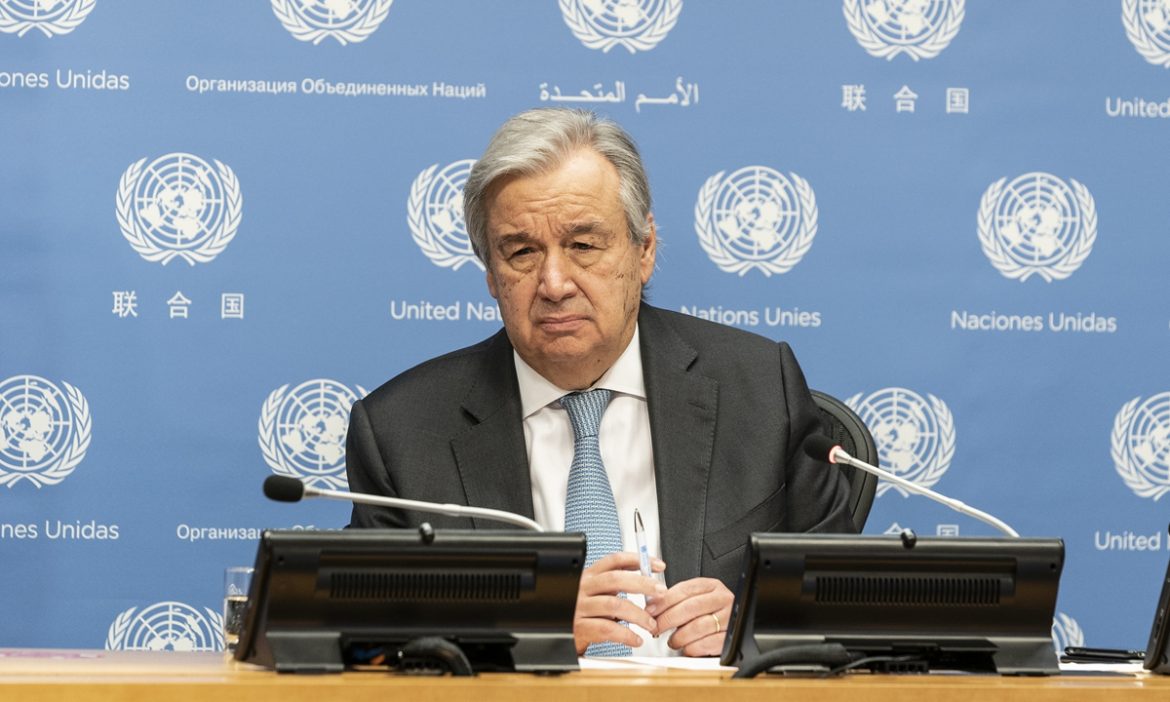To protect people from the worsening impacts of climate change, the United Nations has said that there is a need for the world to be covered by weather disaster early warning systems within five years.
UN Secretary-General, Antonio Guterres, who announced this during the launching of the early warning systems plan on World Meteorological Day, said that third-world people, mainly in the least-developed countries and developing small island states, were without early warning coverage.
While noting that the plan would cost $1.5 billion, the UN chief insisted that it would be money well spent compared to the devastation wrought by meteorological disasters.
“The United Nations will spearhead new action to ensure every person on Earth is protected by early warning systems within five years,” Guterres announced during the launch.
The UN boss noted that at least 60 per cent of people in Africa were widely open to weather catastrophes, adding that proper early warning systems for floods, droughts, heatwaves, or storms would allow people to know that hazardous weather was coming and set out plans for what governments and individuals should do to minimise the impacts.
“Each increment of global heating will further increase the frequency and intensity of extreme weather events,” he said. “Early warning systems save lives. Let us ensure they are working for everyone”.
Read also: Brazil accused of ‘carbon accounting trick’ in updated climate pledge to the UN
At the next UN climate conference, to be held in Egypt in November, the UN’s World Meteorological Organisation is expected to present an action plan which it believes would save countless lives, protect the most vulnerable, and make good economic sense.
The WMO said the number of weather disasters it recorded went up fivefold from 1970 to 2019, due to climate change and an increased number of extreme weather events, but also improved monitoring.
“Thanks to better warnings, the number of lives lost decreased almost three-fold over the same period,” the organisation said.
Recall that the 2015 Paris Agreement on climate change, struck at the COP21 summit, called for capping global warming at well below two degrees Celsius above the pre-industrial (1850-1900) level, and ideally closer to 1.5 degrees Celsius.
Responding to this, Guterres said it was necessary to limit global temperature rises to 1.5 C as the hotter the planet gets, the greater the frequency and intensity of extreme weather events.
Story was adapted from Punch.
